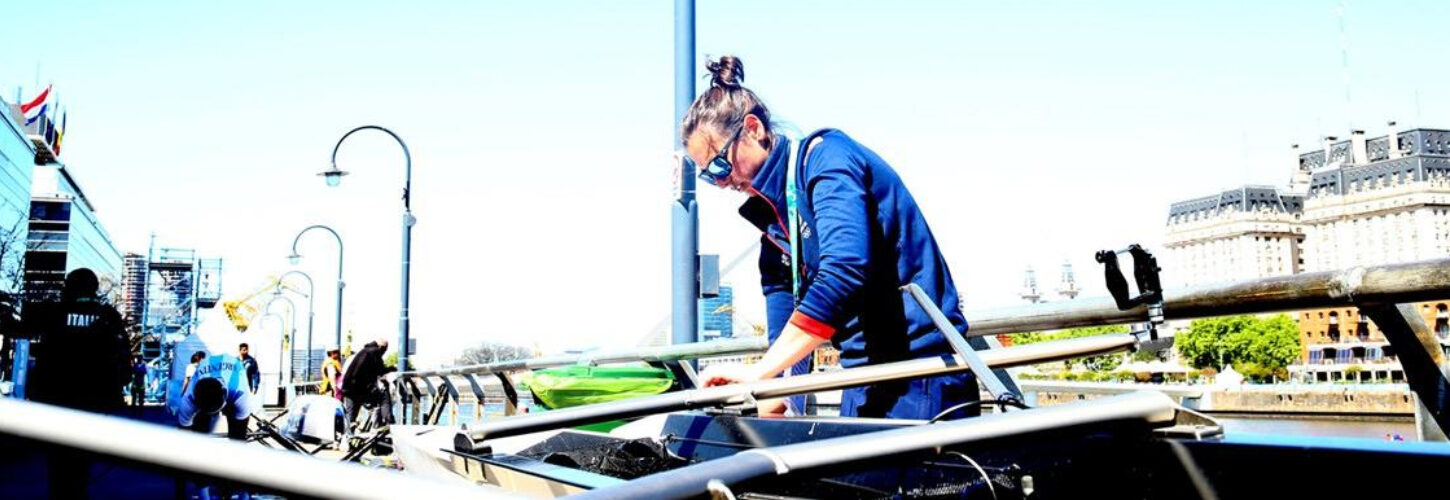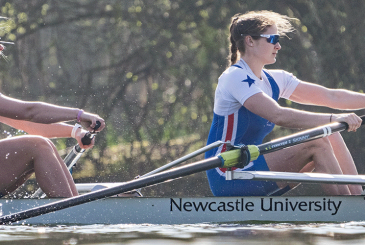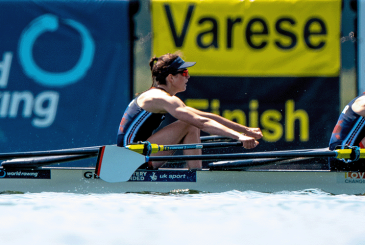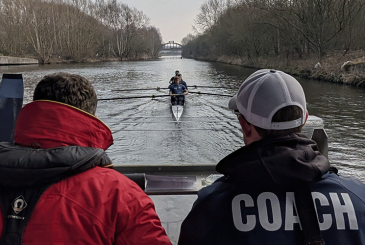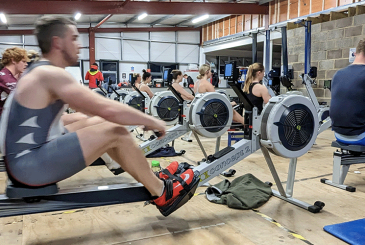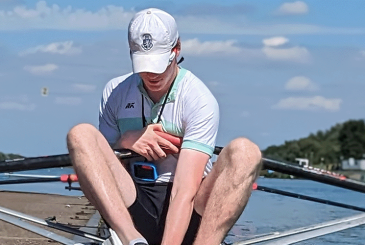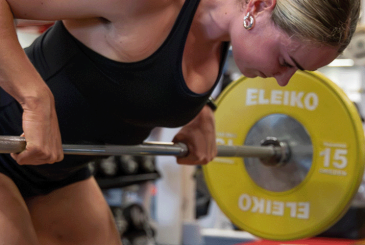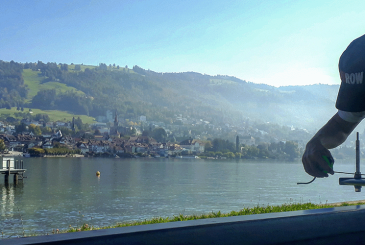As Senior Coach at Hampton School, Helen Taylor is one of the few female coaches at an all-boys school. Phoebe Horan from Junior Rowing News finds out more
Helen Taylor has become a household name on the junior rowing circuit, as a well-established coach with over 10 years of experience. Nothing unusual to see here, most would say. Except Helen is one of a select few female coaches currently in situ at an all-boys school. Having driven Molesey’s junior squad to impressive heights over a four-year stint, she was recruited for the top job at Hampton in 2018.
Helen was first introduced to rowing during her time at Oxford University after previously competing as a national swimmer at school. When we sat down with Helen, she told us what made her fall in love with the sport.
“For me, it is the idea that you constantly improve and there is no perfect stroke,” she explained. “However, there are so many ways to get better through buying into boat feel, technique and then off the water physicality and strength training as well as the mental side of the sport.”
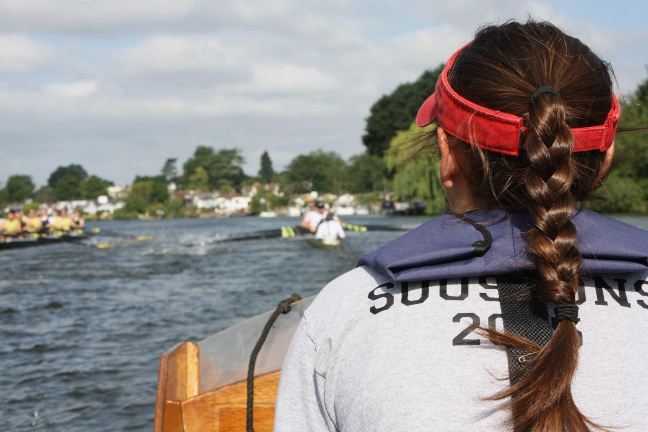
Throughout her journey, Helen has witnessed innumerable athletic success stories at national and international level, but her favourite coaching experience may come as a surprise to many.
“I was at Molesey in my last year and we did a girls’ four. These girls were not the biggest or strongest on the ergo but turned up to every session and did the same training as the boys that went on to win Junior Worlds.
“We gave them the challenge to race in the championship category at the National Schools’ Regatta.”
“One of the biggest things I’ve learned is to start anew every year”
She recalls them powering through the field in the semi-final, initially lying fifth or sixth before eventually qualifying for the A-final in spectacular fashion.
“I’ve never experienced that feeling on a bike – it was just pure elation and happiness for them as they were able to prove to themselves their ability to produce a good race.”
As with all top rowing coaches, her fundamental principles underlie much of what she does day-to-day.
“One of the biggest things I’ve learned is to start anew every year,” she told us. “Within each season we must think about the bigger picture and, essentially, we need to be a great transition path for juniors to carry the sport into university and see where they can get to.”
Helen’s philosophy also revolves around extensive planning – leaving no stone unturned as she phrases it – but she concedes that sometimes sport is impossible to plan for.
“It is very important that behaviours and attitudes are an overriding value no matter the performance”
“Every year brings a different athletic environment, so being able to adapt and manage season to season is crucial.”
At a junior level, there is a fundamental focus on preparing athletes for a world beyond the confines of school and Helen explains how she manages this.
“I think it is very important that behaviours and attitudes are an overriding value no matter the performance. I see my role as a guide for athletes through their own training, which means that our work needs to be athlete-led and promoting ownership for self-motivated training attitudes.”
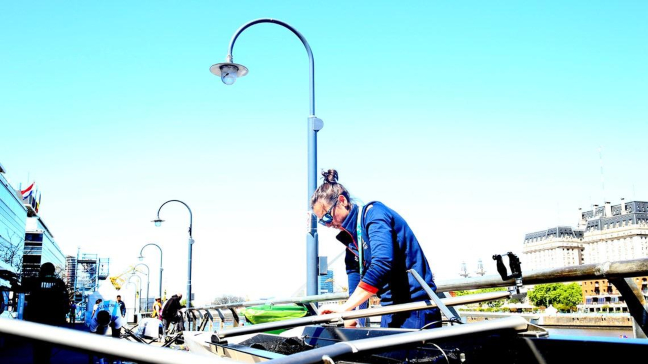
Operating as a female in a male-dominated coaching environment can appear to have its challenges, but Helen believes that her charges judge her by the individual understanding she shows.
“I would say I’ve always been able to coach male athletes at any age,” she said. “I think as long as you can appreciate them no matter who they are and treat them as individuals then they can respond to that.”
Does her coaching style change between male and female athletes?
“I think there is a difference between mixed and boys-only groups, but that is due to the dynamics and training environment,” she told us.
“When moving into a school environment, one of my biggest challenges has been understanding what created the incumbent dynamic.”
As with all conversations around sport currently, it is impossible to ignore the elephant in the room – COVID-19 and the impact it has had on the rowing world.
“We left in March and made a conscious decision not to force our athletes to get on the ergo,” Helen explained.
“I think adaptability and self-awareness are important and these are attributes that our team have really harnessed”
“After a winter off the water we had already been pushing a lot more running and athleticism in training and so lockdown was an opportunity to extend that further and see where they could get to in terms of cross training.”
At Hampton, the team tried to be flexible and open to allow self-exploration. Such an approach, set against the wider context of enforced lockdown, seems logical.
“For example, if an athlete is really enjoying running then we can adapt to a programme that helps them to run as long as there is a goal and they are getting something out of it at the end,” Helen clarified.
The most recent lockdown has brought its own challenges with shorter and colder days, but Helen and the Hampton team are diversifying in the face of adversity.
“We have tried to do a few online calls to train together, but we were also quite conscious that the guys are on their laptops all day at school, so it’s a tough balance to strike. That has led to a realisation that the programme had to be more individually flexible and we are relying on athlete honesty more than anything else.
“Although the past year has been testing for so many in so many different ways, the conversations that we have had reveal that many athletes and coaches have developed skills that previously went untrained and untested.
“I think adaptability and self-awareness are important and these are attributes that our team have really harnessed,” Helen explained.
“I’d also say that the ability to step back or take a break and to identify when they might need to change training or have a day off – that is crucial for self-development.
“The challenges they’ve managed to get through with the cross training and finding enjoyment I think can potentially have quite a huge impact when they are back together in a boat.”
Photo of the Youth Olympic Games: World Rowing


